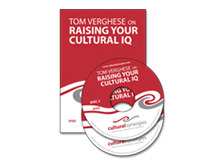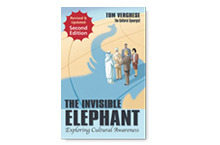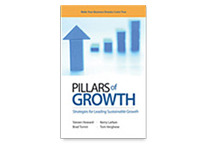 |
| THE CULTURAL SYNERGIST |
2014

The end of a year is a natural pause point to assess progress, accomplishments, failures, lessons learned and goal status for the year past. It also provides an opportunity to set objectives for the coming year.
We want to thank you for your continued support of our work. We have had a successful year with new projects and assignments and look forward to building on them for next year. Wishing all of you a joyful, peaceful and successful 2015. If you would like to read or follow our Cultural Intelligence Blog go to:
http://culturalsynergies.wordpress.com Best Wishes Tom Verghese Send to Friend |
||||
| The Value of Reflection | ||||
 |
||||
|
|
The Naked CEO is a recent publication. Malley is the CEO of CPA Australia. He has had a diverse background, having worked in banking, academia and media prior to his current industry. His writing is engaging, informative and interspersed with some great personal stories. Malley begins with his own story, his humble beginnings where he worked his way from being the suspended schoolboy, through to an adult who was always keen for a new challenge or adventure and eager to regard his failures as important components of his journey. The book is pitched at a wide readership � from school and university students, to leaders in various stages of their leadership roles. It offers an insightful account of the learning curve that Malley has followed and his leadership principles. Malley claims that ��mobilising people is about developing your own style, learning about the peoples you lead, being authentic and creating a positive belief in the journey ahead.� I subscribe to the claims that leading requires empathy, strength, multiple experiences, an ability to listen to your instinct, courage, vision and effective communication skills. All of which are discussed in detail. |
|||||
| RECOMMENDED BOOK: " The Naked CEO: The truth you need to build a big life." By Alex Malley (2014). |
||||||
 |
||||||
|
|
RESOURCES 'Raising Your Cultural IQ - DVD and CD 'Raising Your Cultural IQ' explores the issues around culture, the challenges that culture can pose and provides some great strategies on how to leverage on cultural differences and similarities. 'The Invisible Elephant - Exploring Cultural Awareness' Book testimonial by Asma Ghabshi Visit our store here
|
|
 |
||
 |
||
 |
||
 |
|